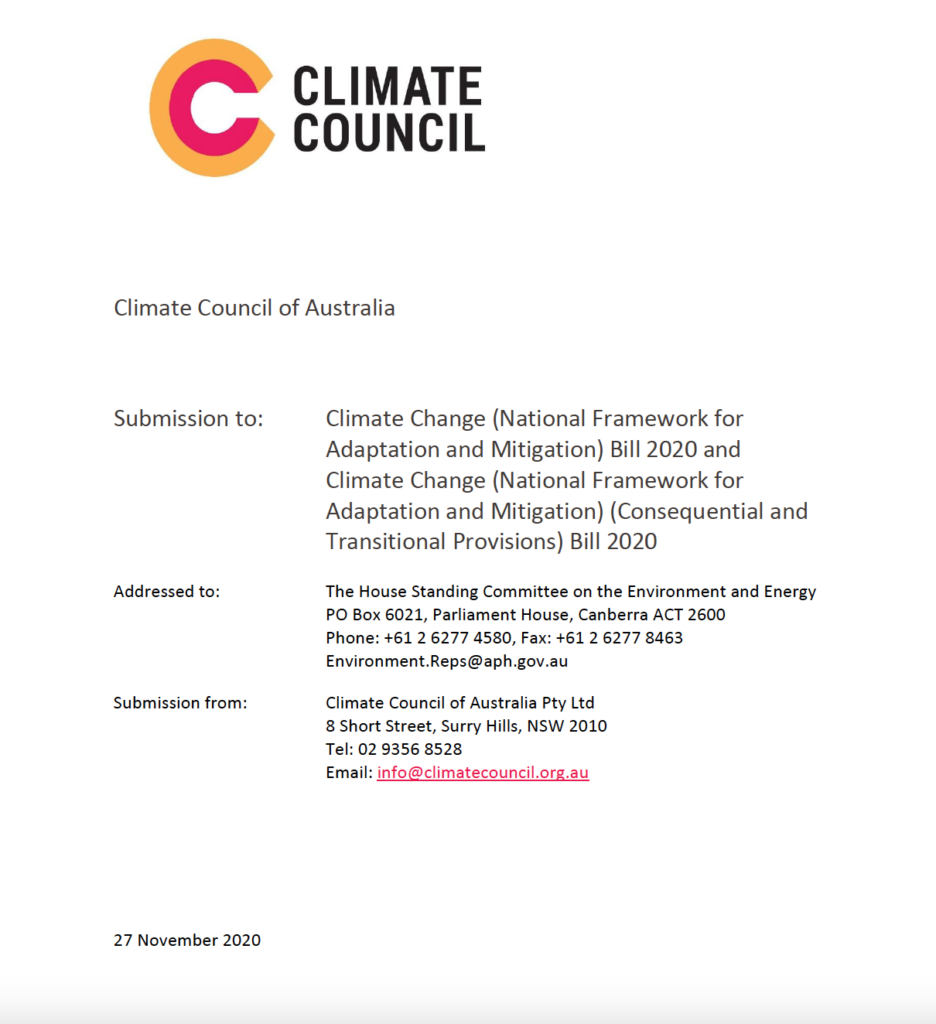DOWNLOAD THE FULL SUBMISSION HERE
Recommendation 1. The rest of the World is moving. Australia’s major trading partners – China, Japan, South Korea, the UK, and the European Union – have set net zero emission targets, and the United States of America is primed. We welcome the proposed Climate Change (Adaptation and Mitigation) Bill 2020 provision of ratcheting up the target. The Australian Government must adopt a net zero policy aligned with science and the global climate context. This means setting a target of net zero emissions well before 2050, substantially strengthening Australia’s commitments to 2030, and a robust process for setting regular, science-based emissions budgets thereafter.
Recommendation 2. Similar to the UK’s Climate Change Committee, a newly established Australian Climate Change Commission must be independent, evidence-based and aligned with science. The Commission must have the resources and complete backing of the Federal Government to ensure that it fulfils its mandate of ensuring accountable and transparent plans to manage the climate challenge.
Recommendation 3. The proposed Bill’s provisions for national risk assessments and adaptation plans are welcome. Strong climate mitigation and adaptation policies are essential from all levels of government, including the Federal Government, State and Territory Governments and local councils. More substantial action is required to reduce Australia’s greenhouse gas emissions, including accelerating the transition to renewable energy and storage technologies, non-polluting transport, infrastructure, food production, banning of any new fossil fuel projects, removing fossil fuel subsidies and the phasing out of existing projects over the next few decades.
Recommendation 4. Regarding the ‘Principle of Informed decision making’ and use of ‘best available public reports’, the Bill rightly acknowledges the role of major science agencies and institutions providing best available science. Decisions should also be informed by peer reviewed papers and reports from academia and relevant climate organisations within the NGO community, including the Climate Council of Australia.
DOWNLOAD THE FULL SUBMISSION HERE
